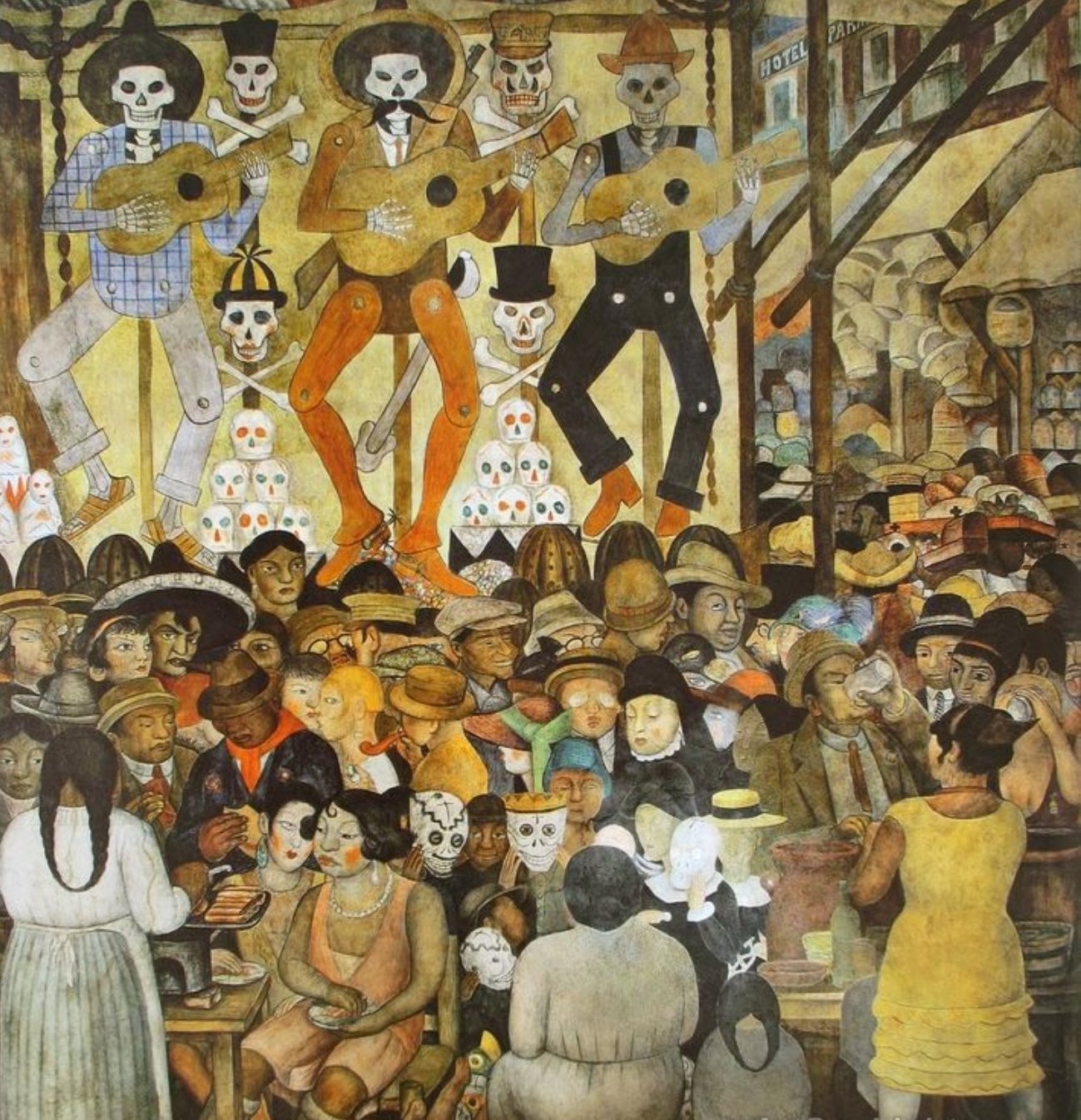
Professor Muerte
Investigating the
Past, Present, & Future
of Día de los muertos
The Work
I’ve dedicated nearly a decade of my life to investigating the past, present, and future of the transborder holiday Día de los Muertos. My mission is to tell captivating stories about how this cultural tradition has transformed from ancient religious ritual to postmodern spectacle. I’m driven by a desire to communicate my knowledge to a wide & diverse audience. I believe it’s vital for Latinos to know the nuanced history of our cultural heritage; but as Day of the Dead gains global popularity it’s also important for the broader public public to know this history.
I focus on the complex and conflicting meanings that Día de los Muertos has for individuals, families, communities, institutions, nations, and global culture writ large. I tackle current debates about Day of the Dead’s origins and cultural identity, while grappling with growing concerns about the holiday’s commercialization and appropriation.
I conduct ethnographic fieldwork in the US and Mexico to study how Day of the Dead fiestas are planned, developed, rehearsed, and staged. I also analyze the way that Day of the Dead’s images and iconography circulate transnationally through visual culture — film, tv, folk art, fine art, photographs, magazines, fashion, and social media.
My scholarship on this holiday is complimented by my cultural practice of creating ofrendas and honoring my ancestors through ceremony & storytelling. Communing with the dead — intellectually, culturally, spiritually, artistically — has resulted in a number of interweaving projects. Information on these projects is listed below.
Book
A cULTUrAL history of day of the dead vol. 1: how día de los muertos became mexican
The book examines how Día de los Muertos was crafted as a symbol of Mexican cultural identity in the early and mid-twentieth century. I focus on the cultural work performed by influential artists, intellectuals, and government officials who participated in Mexico’s nation-building project in the aftermath of the Mexican Revolution. These figures were often transnational citizens who worked in cross-border collaboration to help popularize Day of the Dead in both Mexico and the US. I concentrate my analysis on the visual and narrative representations they disseminated in mass media, art exhibitions, tourism, and film. I argue that their images, narratives, and knowledges of Day of the Dead crafted the holiday as an expression of mexicanidad. Finally, I show how the cultural work performed by these artists, intellectuals, and government officials paved the way for Day of the Dead’s current global popularity.
Book
A cULTUrAL history of day of the dead Vol. 2 : from heritage to hollywood and back again
I offer a critical survey of Day of the Dead’s depiction throughout international film history. From the Soviet avant-garde to Mexico’s Golden Age classics, from anthropological documentaries to Disney’s animated Coco, Dia de los Muertos has served as an exotic and visually appealing cinematic subject. Not only has cinema accelerated Day of the Dead’s global popularity and commodification, it has also significantly impacted the way that Día de los Muertos is celebrated in both Mexico and the US. I demonstrate how cinema has helped transform Day of the Dead into a 21st century transcultural spectacle, and I explain what these transformations mean for our cultural heritage and cultural identity.
Documentary series
Día de Muertos in Los Angeles
Premiere: April 2024, Phoenix Film Festival
This 3-part documentary tells the story of Mexican-Americans & Latinos in Los Angeles fighting to keep their Día de Muertos traditions alive during the global pandemic. The series focuses on the individuals, families, and communities who stage annual Day of the Dead fiestas in the city and explores the deep meaning this holiday has for them. Along the way we explore the origins of Day of the Dead in Los Angeles and the transformations the holiday has undergone as it has grown in global popularity.


